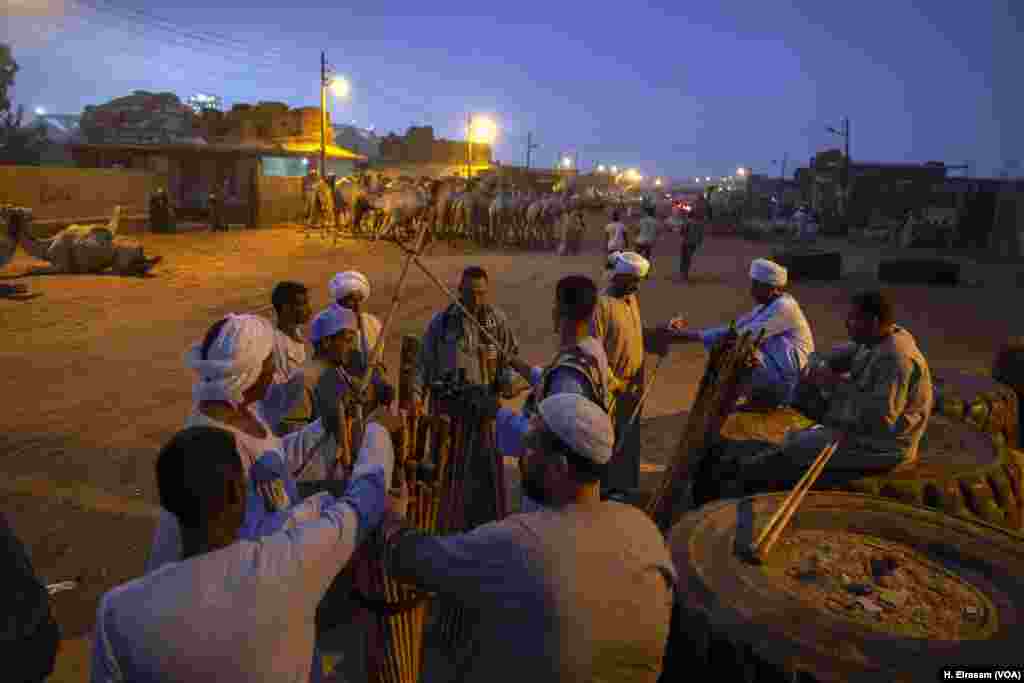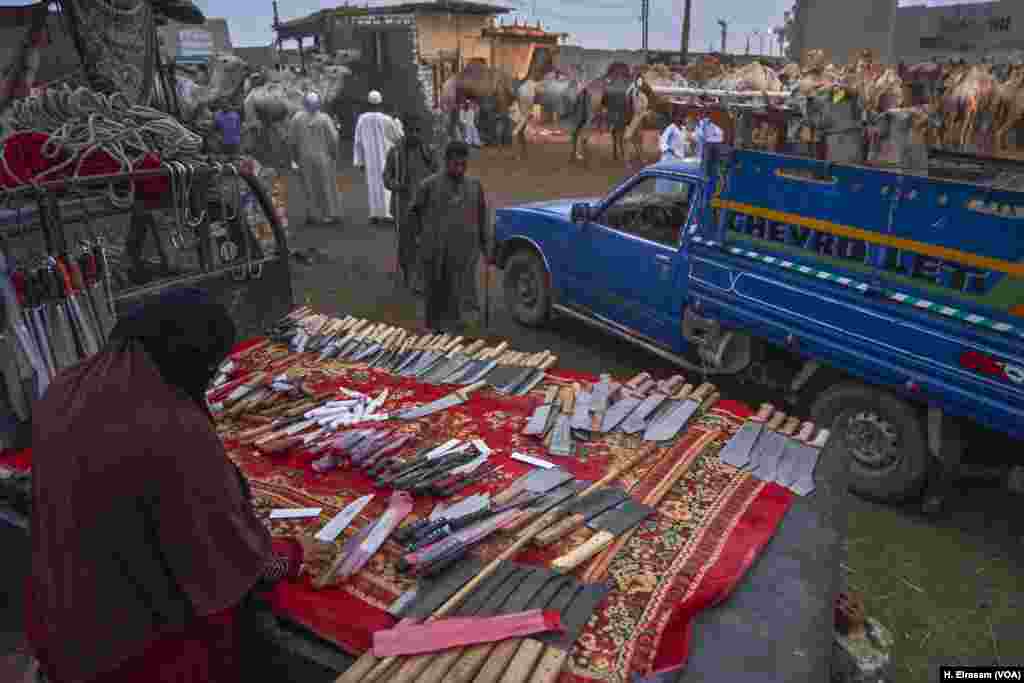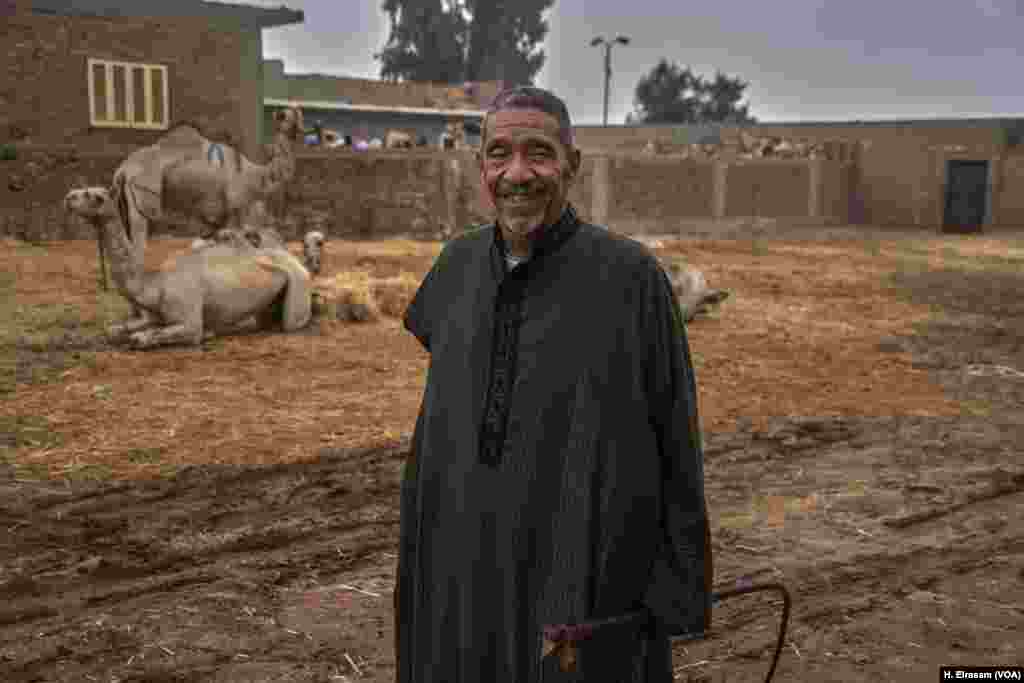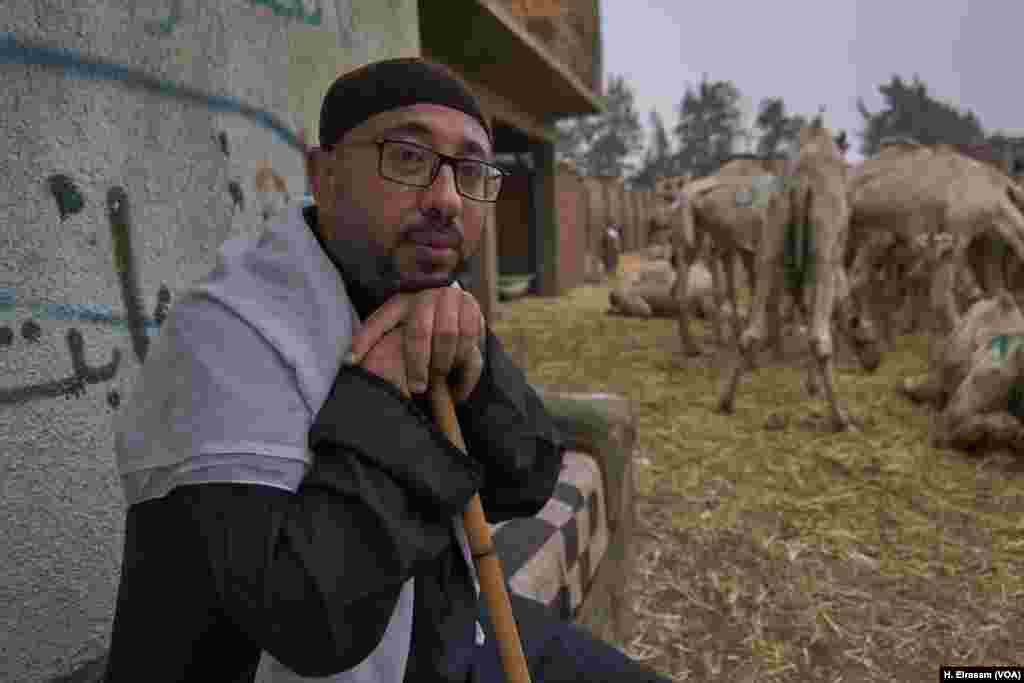In the weeks leading up to the Muslim sacrifice feast, the Birqash camel market outside Cairo springs to life, with camel sellers and buyers traveling from afar to make deals on the animals which are sold for meat, transportation, and tourism. The market is part of a long tradition and a tourist attraction, but under the colorful scene is what animal welfare activists say is a more sinister aspect: some of the animals do not survive the arduous journey on foot from as far away as Sudan. Those who do make it face what activists say is mistreatment that includes malnutrition, beatings and other forms of torture.
Eid Means Big Business - and Criticism - for Egypt's Camel Traders

5
Selling sticks to beat the camels is a business that thrives on the sidelines of the market.

6
Other businesses like selling knives and slaughtering tools set up alongside the camel trading business at the Birqash market.

7
Mohamed Abdoul-Aal, an animal trader who usually deals in cows and bulls, has turned to the camel business. “Camel trading now is much better than trading in cows and bulls, since many of them are suffering from foot and mouth disease this year.”

8
Mohamed Omar El-Batlan brings camels from Sudan. “The Egyptian authorities won’t allow us to take them on trucks after we cross the border. We have to take them on foot for more than 150 kilometers from the Egypt-Sudan border,” he said. “These 150 kilometers’ costs time and food for the camels and the camels get exhausted.”



